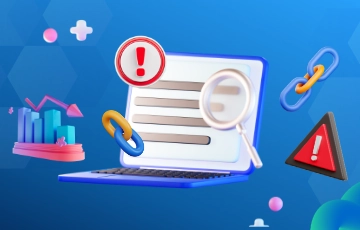Key Takeaways
- DR/DA scores can be misleading and easily manipulated.
- Page-level traffic is a more accurate trust signal.
- Contextual relevance boosts both rankings and referral clicks.
- Anchor text and placement directly impact SEO value.
- Smart SEOs prioritize trust, traffic, and real-world visibility.
Let’s be honest—chasing high DA or DR links isn’t cutting it anymore. If you’re still filtering prospects solely by Moz or Ahrefs scores, you’re probably missing the links that truly move the needle.
This post is for SEOs, content marketers, and link builders who want to upgrade their backlink strategy using smarter, more impactful metrics.
We asked 9 industry experts: “What link-building metric do you trust most—besides DR or DA?”

Their answers reveal what to really look for when vetting links in 2025—and how to stop wasting effort on links that look good but perform poorly.
Why DR/DA Is No Longer Enough
Domain Rating (DR) and Domain Authority (DA) have long been the industry standard for evaluating backlink quality.
They offer a quick, easy-to-understand score that’s become a default filter in every SEO’s prospecting spreadsheet.
But here’s the problem: they’re surface-level signals. And like any shortcut, they can be dangerously misleading.
Both metrics are domain-wide, which means they don’t reflect the value of individual pages.
A DR 80 website might host your backlink on a stale tag page with zero traffic and no keyword rankings.
On paper, it looks great. In practice, it delivers nothing—no SEO value, no referral clicks, no rankings.
Even worse, DR and DA are easily manipulated. Link farms, expired domains, and PBNs can fake authority with enough volume.
We’ve seen ghost sites with DR 70+ and no real audience, no ranking pages, and no trust from Google.

That’s why smart SEOs are moving beyond these vanity metrics. They’re analyzing real traffic, topical relevance, anchor text, and trust signals at the page level.
To find out what actually works, we asked:
“SEO experts and link builders, what’s one link-building metric (other than DR/DA) you trust the most, and why?”
Here’s what 9 thought leaders had to say—each revealing the specific metric they rely on to cut through the noise and earn backlinks that boost visibility, rankings, and real ROI.
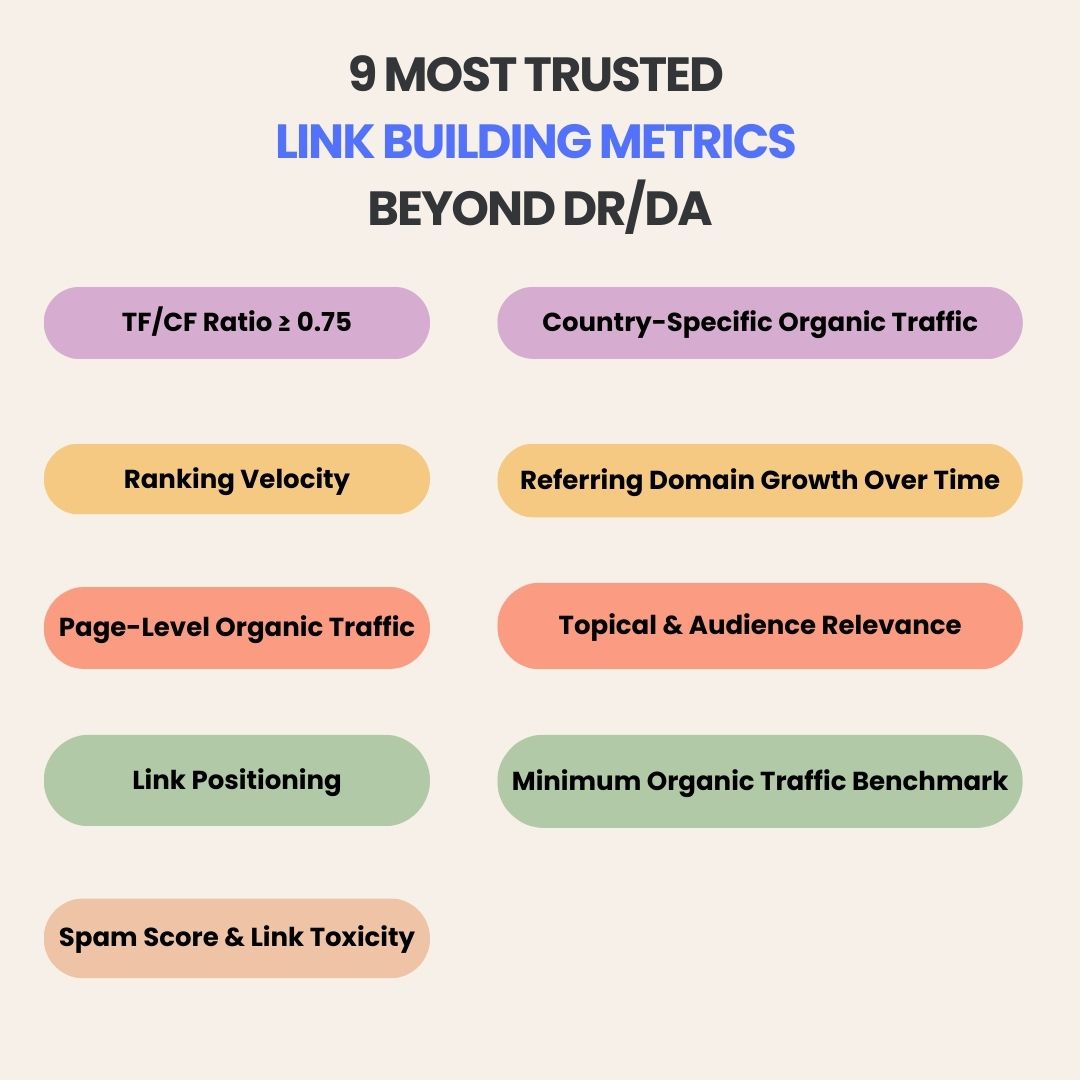
1. Trust Flow vs. Citation Flow: A Better Backlink Quality Check
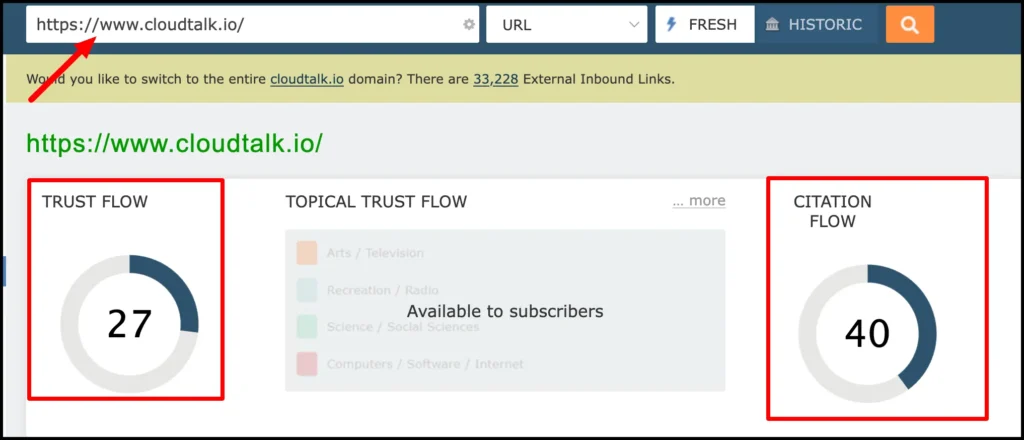
After DR, I find the most useful link metric to be Majestics “Trust Flow” (TF).
While DR gives me the volume of link juice on a site, TF gives a sense of the quality and trustworthiness of those links, which Google surely evaluates.
I look for not only a high TF number but a proportion of Trust Flow to Citation Flow of .75 or higher.
Citation flow is Majestic’s measure of “volume” of link juice, while TF measures the quality of the link juice. If a high proportion of the links is low quality, the proportion number drops below .75, and I know links from the site are less valuable.
Julia Rueschemeyer, Attorney, Attorney Julia Rueschemeyer Divorce Mediation
——————————————-
2. Why Country-Specific Traffic Beats Global Link Metrics
Beyond DR or DA, the link-building signal I value most is country-specific organic traffic found in the “Traffic by location” section in the Ahrefs report, supported by a manual review of the ranking keywords.
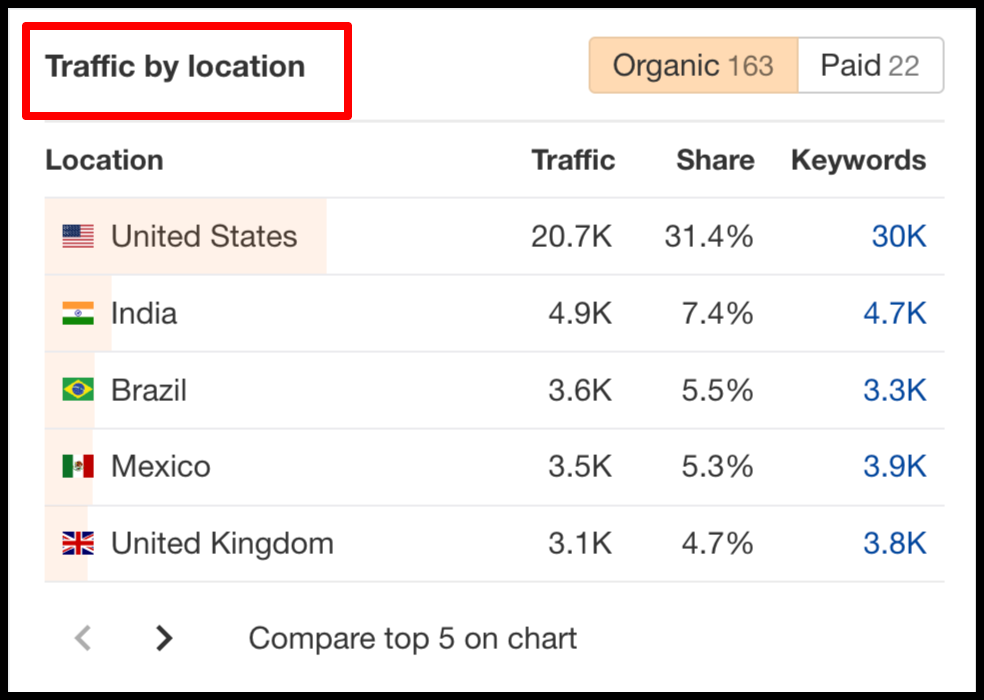
Seeing meaningful traffic from the market I am targeting, such as a healthy share of UK visitors for a site operating in the UK, shows the site genuinely reaches the right audience.
Global numbers can look impressive, but the link offers little value for rankings or referrals if visitors are not based on where my client sells.
After I confirm location traffic, I examine the keywords the site ranks for. I want terms firmly within our niche.
Solid overlap signals authority on the subjects that matter to my client. If the list is a scattershot mix of unrelated, low-value topics, it suggests thin, unfocused content, and I move on.
Local traffic and topical relevance provide a clearer, more practical measure of link quality than raw domain metrics.
Raisul Islam, Digital Marketing Executive, MeasureMinds Group
——————————————-
3. Contextual Relevance: The Link Quality Metric That Truly Matters
A link-building metric that I strongly believe in is organic traffic relevance.
Unlike pure number metrics, it guarantees links are from pages actually related to your niche, which directly affects rankings and visitor interaction.
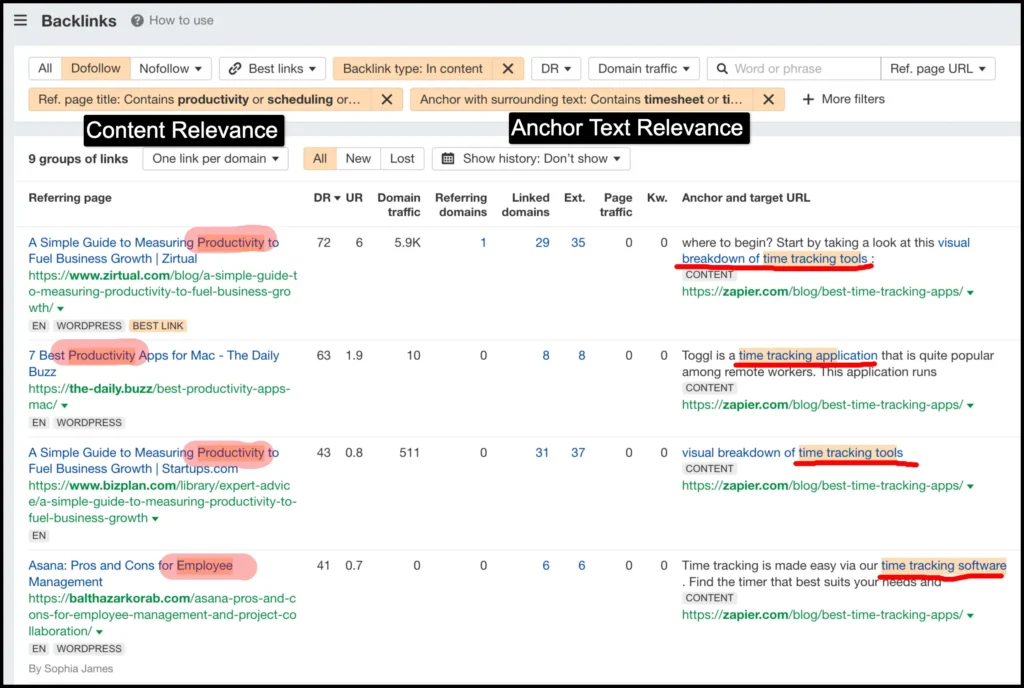
At Otto Media, we’ve found that targeted, contextually relevant backlinks always beat out generic, high-authority links.
Callum Gracie, Founder, Otto Media
——————————————-
4. Page-Level Organic Traffic Shows True Link Value
One link building metric I trust the most, beyond DR/DA, is organic traffic to the linking domain, specifically to the page/ subfolder where the link would sit.
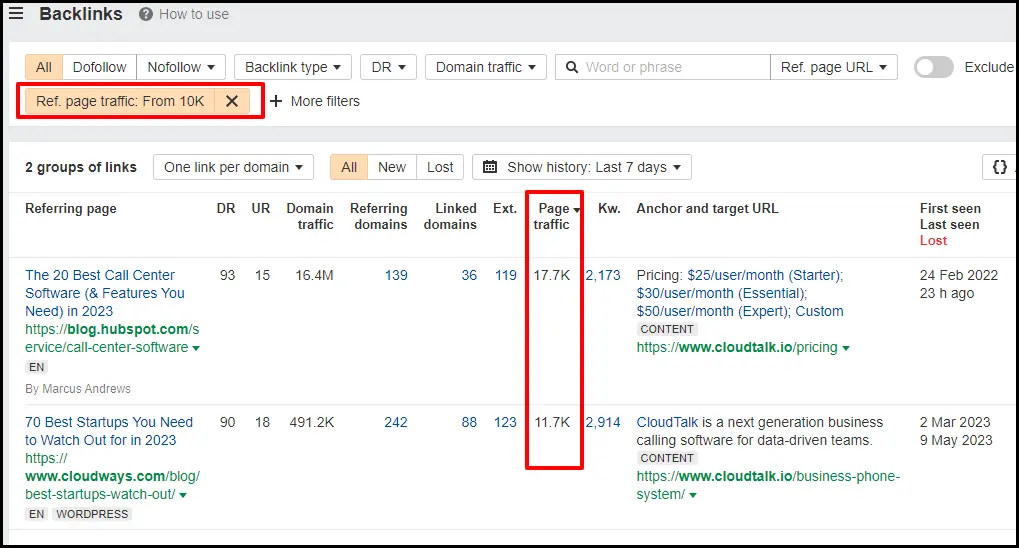
DR and DA can be misleading, especially with sites that inflate scores through link schemes or homepage authority that doesn’t pass to inner pages.
But when a site or page is actually getting search traffic, it tells me a few things: Google trusts it, users are engaging with it, and it has real-world relevance.
When building links, I check each prospect’s traffic using Semrush or Ahrefs. If the page has keyword rankings and steady traffic, that link is more likely to pass value, not just in SEO terms, but even referral clicks.
This approach helped a client get backlinks from niche sites with “lower” DRs that still moved rankings.
Lesson: authority scores can be gamed, but traffic signals real trust.
Oscar Scolding, Sr. SEO & Performance Strategist @ SEO Sherpa, Oscar Scolding
——————————————-
5. Referring Domain Relevance
One link-building metric I trust the most, other than DR/DA, is referring domain relevance.
This metric looks at how closely the content of the referring site matches the topic or industry of the page you’re trying to rank.
Relevance is crucial because a high-quality link from a site within the same niche or industry carries far more weight than one from an unrelated site, even if the latter has a high DR/DA. It shows that the link is contextually valuable, which not only helps improve rankings but also signals to search engines that your content is credible and authoritative within its specific field.
I’ve seen firsthand how acquiring links from highly relevant domains can significantly boost SEO performance, even if those domains have a lower DA. It’s about the quality and context of the link, not just the quantity or authority of the linking site.
Georgi Petrov, CMO, Entrepreneur, and Content Creator, AIG MARKETER
——————————————-
6. Ranking Velocity and Top Pages Reveal Authority You Can Trust
I don’t trust DA at all anymore as the metric can be gamed. There are many ghostship websites that have a high DA but are otherwise dead link farms.
The main metric I look at is general ranking velocity. If the website holds good ranks overall, that’s an indicator the site is favoured by Google, making it a great prospective backlink.
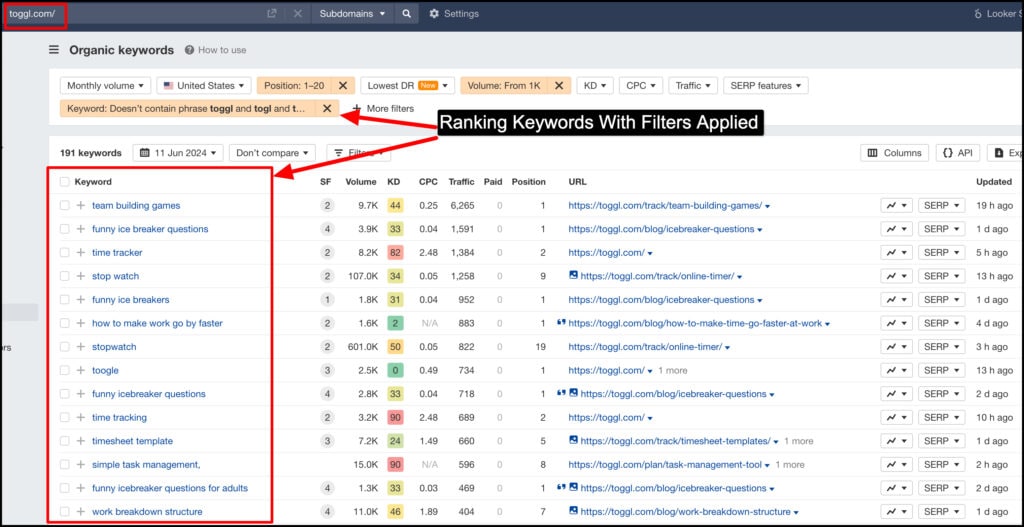
The other metric I trust is “top pages” within ahrefs. This looks at the count and size of ranking pages, indicating a live and strong site.
Ben Poulton, Founder, Intellar SEO Agency
——————————————-
7. Consistent Link Velocity
One link building metric I trust more than DR or DA is referring domains over time—specifically, how consistently a site earns backlinks from diverse sources.
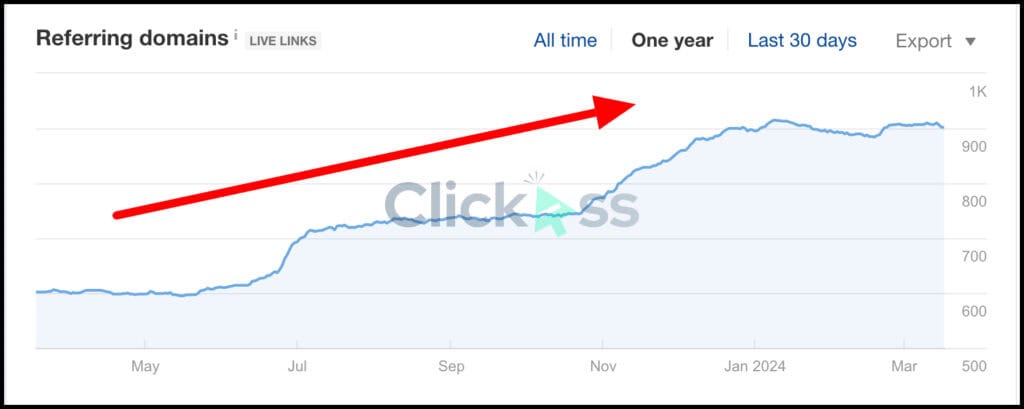
A site with a DA of 70 but flat or declining referring domains is a red flag to me.
On the other hand, if I see a domain steadily gaining links from real, varied websites over months or years, I know it’s likely a healthy, trusted source.
I learned this the hard way after getting a link from a high-DA tech blog that turned out to be part of a private blog network. It looked great on paper, but their referring domains had been flat for over a year and engagement was nonexistent. That link added zero value and was eventually deindexed. Since then, I focus on link velocity and variety.
My rule?
If Google sees the site as naturally growing, it’s probably worth getting a link from.
Julian Knox, Marketing & PR Coordinator, Web Search Optimisation
——————————————-
8. Minimum Organic Threshold as Red Flag Avoidance
Moz DA can be manipulated easily, anyone can go to Fiverr and purchase 1 billion backlinks for $5 and increase their DA in a short period of time, Ahrefs’ Domain Rating might not be manipulated that much but could still be.
But there’s something that can’t be manipulated which I and many top SEOs friends I know use and that is Organic traffic.
If the website has high DA/DR but little to no organic traffic that is a red flag.
With that being said, a super important metric for building links is checking the overall organic traffic of the website. I aim for nothing less than 500+ organic traffic on Ahrefs or Semrush.
If a website has decent DR/DA you want to ensure it is getting traffic too. If you don’t do that you could end up destroying your site getting a backlink from link farms.
Something else you need to know before I sign off, Ahrefs DR is better if you are doing link building because unlike Moz, it measures not just any kind of backlinks but high quality ones to rate a sites’ domain strength.
Prosper Noah, Founder, Tipsonblogging
——————————————-
9. Context and Relevance Drive SEO—Not Just Authority Scores
As someone deeply involved in SEO strategy at Zapiy, I’ve learned that while Domain Rating (DR) and Domain Authority (DA) are useful for a quick snapshot, they don’t always tell the full story. One link building metric I trust more is referring domain relevance.
In other words, how contextually aligned the linking site is with our niche and the specific content being linked to.
Search engines have become increasingly sophisticated at evaluating the topical relevance of backlinks. A link from a moderately authoritative site that’s highly relevant to our space often drives more impact—both in rankings and in targeted referral traffic—than a high-DA link from a tangentially related or generic source.
For example, a backlink from a niche marketing blog that discusses SaaS tools and platforms tends to move the needle more for us than a generic news site with a high authority score but little alignment with our audience.
One case that stands out is a guest post we contributed to a well-respected MarTech blog that consistently covers automation trends.
Despite the domain not being particularly high in DA, the content was highly relevant, well-trafficked, and closely tied to what Zapiy offers.
That link drove consistent qualified traffic and improved our rankings for mid-funnel keywords. The engagement metrics that followed—low bounce rate, long time on page, and conversions—reinforced the value of contextual relevance.
When assessing link opportunities, I always ask: Will this link help a human, not just an algorithm?
If the answer is yes—because the audience matches, the content adds value, and the relationship is authentic—then it’s a link worth pursuing.
That mindset has consistently delivered better long-term SEO results than chasing metrics in isolation.
Bonus Metrics Which I Track In Addition To Above:
1. Follow vs. Nofollow Links—What Really Matters
In link building, not all links are treated equally—especially when it comes to follow vs. nofollow attributes.
Follow (dofollow) links pass “link juice,” helping boost your site’s authority and rankings in search engines.
These are the most coveted backlinks and are often earned through editorial mentions, guest posts, or partnerships.
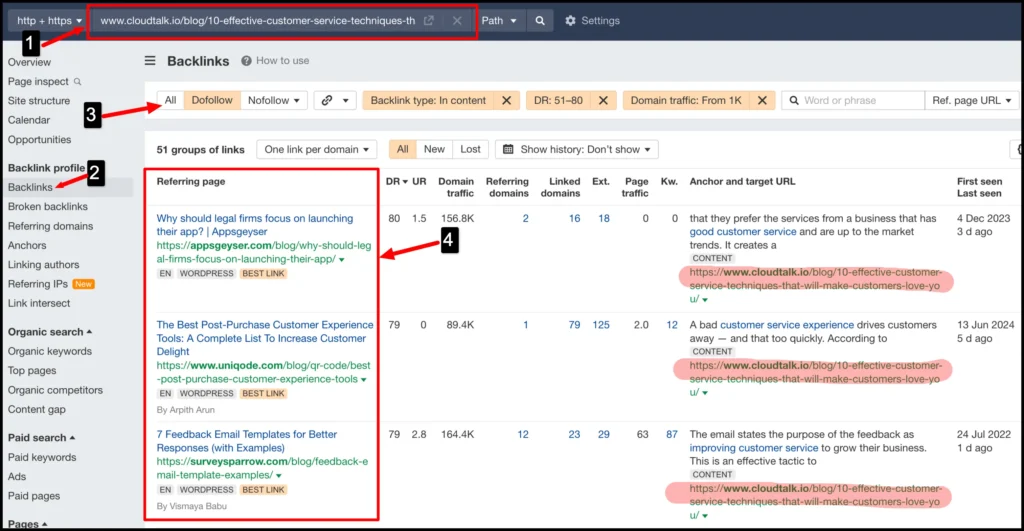
Nofollow links, on the other hand, include a tag that tells search engines not to pass authority.
While they don’t directly influence SEO, they still offer value—especially if they drive referral traffic, build brand credibility, or come from high-visibility sources like news sites or social platforms.
The smart play?
Aim for a natural mix.
A diverse link profile with both follow and nofollow links looks organic to Google and reduces the risk of penalties.
Focus more on placement, relevance, and traffic potential—not just the tag attached to the link.
2. Link Positioning and Contextual Relevance
Not all links are created equal—even on the same page. Where a link appears and how contextually relevant it is to the surrounding content heavily influence its SEO value.
Google’s Reasonable Surfer Model suggests that links likely to be clicked (e.g., those placed higher in the main body) pass more weight than those buried in footers, sidebars, or author bios.
A link surrounded by relevant, topic-aligned content signals stronger intent and earns more trust from both users and algorithms.
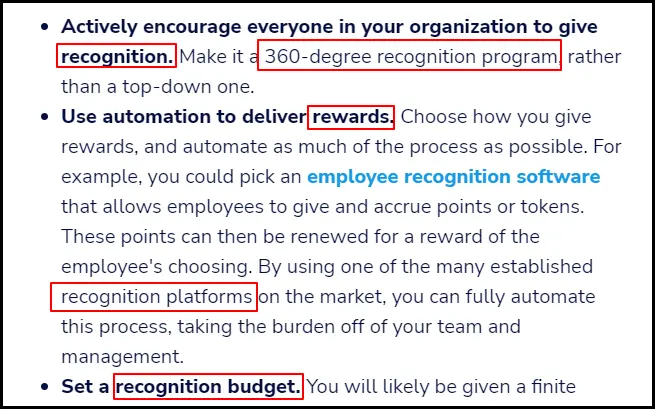
For example, a link embedded in a blog’s body that naturally expands on a keyword or concept performs better than one stuck in a generic list of resources.
3. Spam Score and Link Toxicity Assessment
Even a high-DR site can tank your SEO if it’s part of a spammy network.
That’s why checking spam score and link toxicity should be standard practice in your link vetting process.
Tools like Moz’s Spam Score, Semrush’s Toxic Score, and Ahrefs’ Link Profile analysis can help spot shady patterns—like high outbound link ratios, irrelevant anchor texts, or links from deindexed pages.
For a deeper cut, Julia Rueschemeyer recommends using Majestic’s Trust Flow (TF) to Citation Flow (CF) ratio.
“If a high proportion of the links is low quality, the TF/CF ratio drops below 0.75—and that’s a red flag.”
A strong TF/CF ratio reflects quality over quantity—signaling that the site earns trust, not just links.
So before placing that backlink, check whether it’s coming from a site Google sees as credible—or one it might already be ignoring.
Final Thoughts: Pick Links That Help Both Humans and Algorithms
Chasing DR or DA alone is like judging a book by its cover.
Today’s most effective link builders prioritize metrics that reflect real trust, traffic, and topical alignment.
Look for links from pages that rank, earn clicks, and speak directly to your audience’s needs. When you optimize for humans and algorithms, the rankings tend to follow.
🚀 Ready to move beyond vanity metrics?
FAQs (Frequently Asked Questions)
- What’s wrong with using only DA or DR for link building?
DR and DA are domain-level scores. They don’t reflect the value of the actual page your link lives on.
High scores can be inflated or irrelevant if the page has no traffic, rankings, or contextual relevance—making it a poor SEO asset despite looking authoritative.
- How can I check if a linking page gets organic traffic?
Use tools like Ahrefs or Semrush. Enter the exact URL into their “Site Explorer” or “Organic Research” section. Look for keyword rankings and estimated traffic—if it’s zero or stagnant, the page likely doesn’t pass much SEO value or referral potential.
- What’s a good TF/CF ratio for spotting toxic domains?
Majestic’s Trust Flow (TF) to Citation Flow (CF) ratio helps gauge backlink quality.
A ratio of 0.75 or higher suggests strong, trustworthy links. Lower ratios indicate spammy or low-quality links, which can dilute your link equity or even harm rankings if ignored.
- How important is anchor text diversity in link building?
Extremely. Over-optimized or unnatural anchor text can trigger penalties. A balanced profile—mixing branded, generic, partial-match, and keyword-rich anchors—signals a natural link strategy.
Relevant anchors placed in-topic boost both relevance and user experience, improving your content’s rankability and trust.
- Can a site with low DR still offer valuable links?
Absolutely. If the site has niche relevance, steady traffic, and ranking content, a link from it can outperform a higher-DR link from a generic or low-engagement page.
Relevance and traffic often matter more than authority scores when it comes to actual SEO impact.
About The Author
Dhruv Mehta
Dhruv Mehta specializes in SaaS CRM, solving link-buying challenges with high-quality, bottom-of-the-funnel links through hyper-personalized outreach. He’s also passionate about sharing tried-and-tested, easy-to-implement SaaS SEO and link-building insights on LinkedIn. Currently, he's on a mission to build 45 SaaS backlinks in 45 days.
Table of Contents
ToggleRelated Posts
SaaS Link Building Playbook for Faster SEO Wins
How to Choose the Right White Label Link Building Partner for Your SaaS SEO Agency
Forum Backlinks in 2025: Strategy, Risks & Truth
13 Cold Email Tweaks That Improved Backlink Outreach (Backed by Experts)
Domain Rating vs Domain Authority – What SEOs Should Focus On
Leading White Label Backlink Services: Ranked & Reviewed
Relevant Links Guide: Master Contextual Backlinks Today
Manual Link Building in 2025: A Human-First Guide
Contextual Link Building in 2025: A Practical SEO Guide That Works
Mastering International Link Building in 2025
Beyond DR: Real Link Building Metrics That Actually Work
10 Proven Ways to Sell Backlinks and Earn $30K a Year
How To Earn Natural Backlinks Without Cold Emails
The Ultimate Guide to Organic Link Building in 2025: Future-Proof Your SEO
Top AI-Powered Link Building Trends for 2025 [From 15 Experts]
Link Prospecting Guide: Find High-Quality Backlinks
Inbound Link: What it is & How It Affects Your SEO Rankings?
Backlink Management Guide: Unlocking Top Tools and Strategies
CTR Manipulation: Discover Ethical SEO Alternatives
Niche Relevant Backlinks: Comprehensive Guide (2025)
White Label Link Building 101: A Guide for SEO Agencies
10+ Niche Driven SEO Strategies to Boost Your Traffic & Revenue
How to Check Who Links to My Site Or Any Site for Better SEO?
What Are Editorial Links? (+ How to Earn Them)
Link Building Checklist (2025): Smart Strategies for SEO Pros
20+ Link Building Benefits for SEO Mastery and Growth
Unlocking the Power of Reciprocal Links in 2025: Strategies for SEO Success
13 Link Building Challenges & How to Overcome Them
16 Link Building Mistakes to Avoid in 2024
What Are PBN Backlinks? (And Why You Shouldn’t Use Them)
Analyzing Your Backlink Profile for SEO & 2 Perfect Examples
10 Ways to Index Backlinks Faster in 2024
Nofollow vs. Dofollow Backlinks: Understanding Their SEO Implications
Tiered Link Building: Everything You Need to Know
What is Link Equity and How Is It Determined?
Link Building 101: Master The Basics and Beyond
The Power of Backlinks: Why They Are Essential for SEO Success
Link Insertion: How to Do it with $0 Investment?
Everything You Need to Know About Link Farming
9 Underrated Techniques to Get High Authority Backlinks in 2024
Doorway Page Explained: Ultimate Effects on SEO And Rankings
Top of Funnel Marketing For SaaS: Strategies, Measurement, and Examples
Link Building Outsourcing: The Definitive Guide [2023]
8 Cost-Effective Ways to Get You Higher Search Engine Rankings
An Ultimate Guide to Growth Marketing





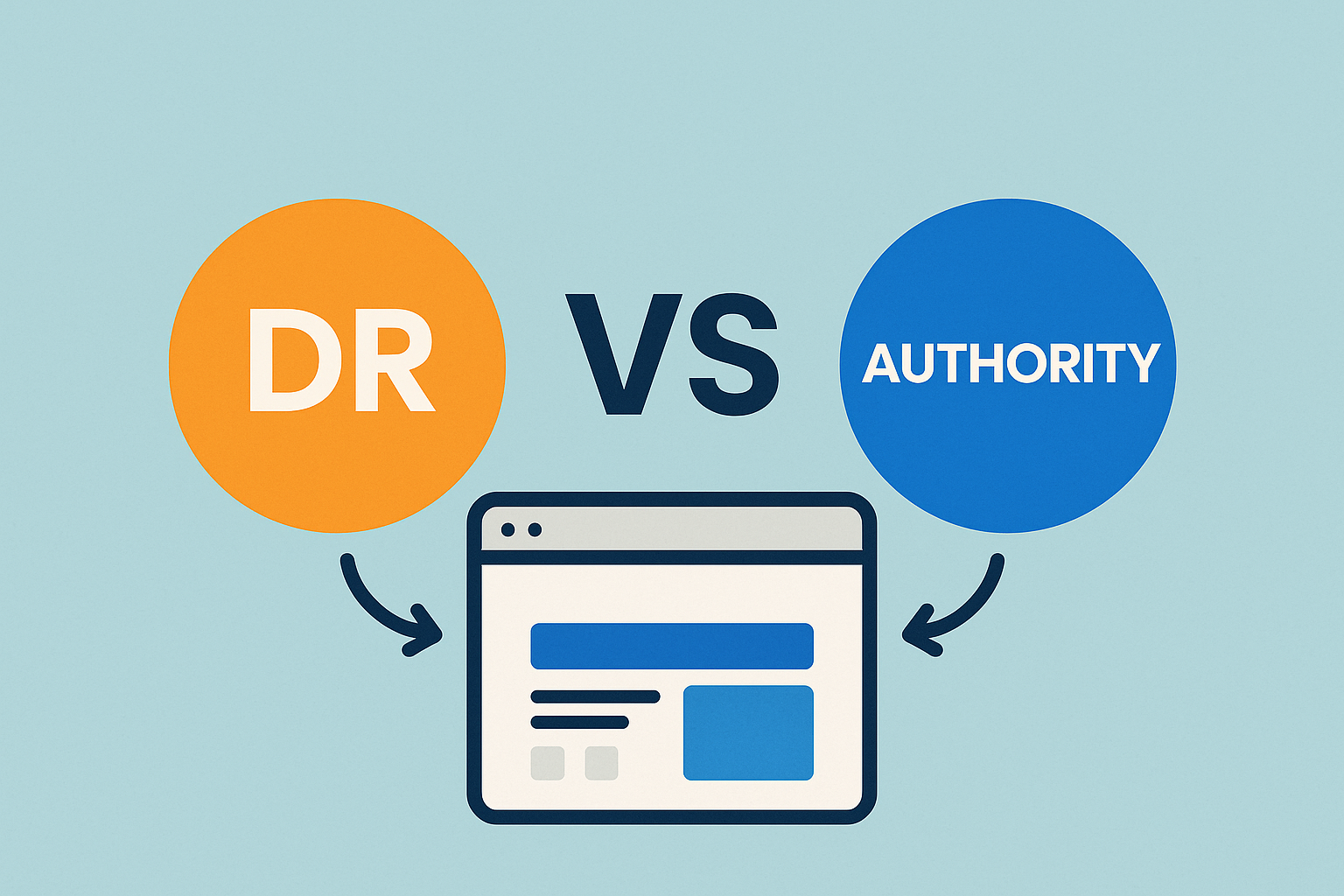



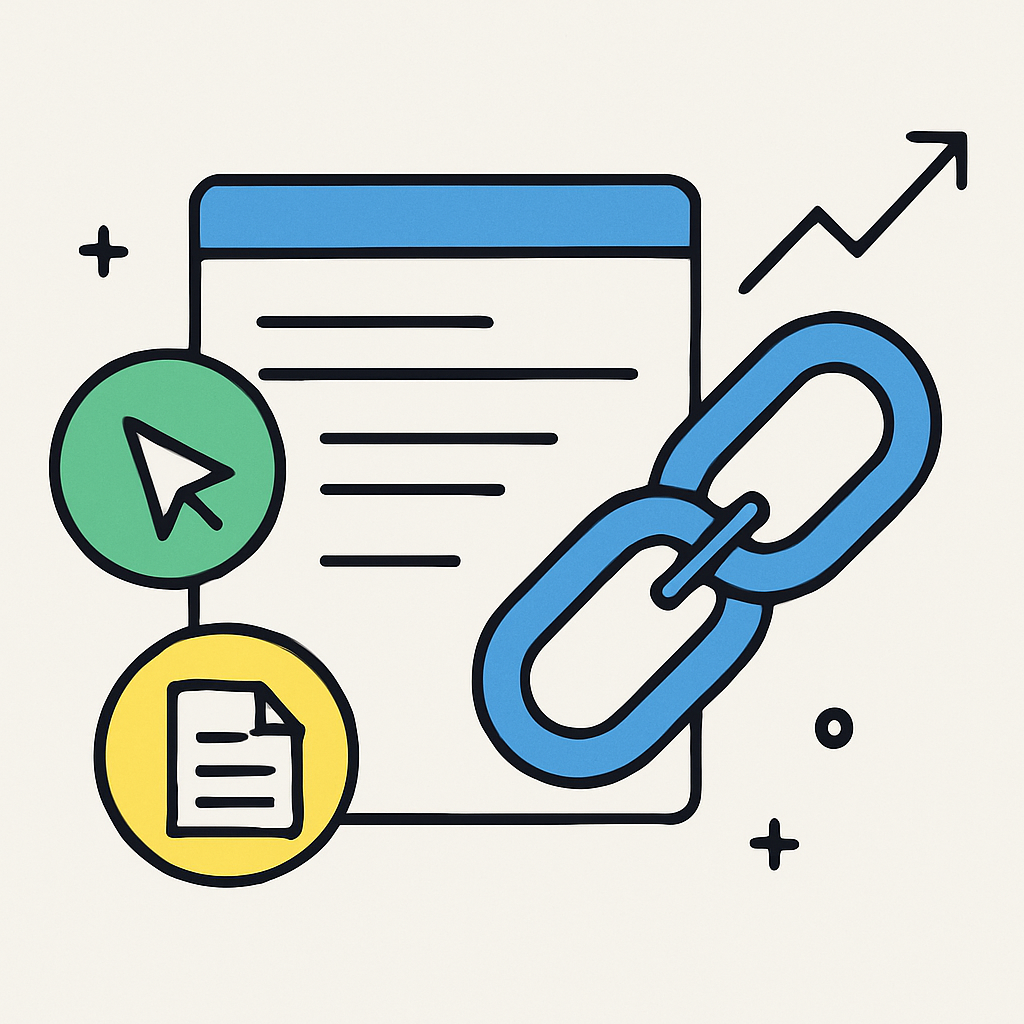





















![Backlink Profile: Analysis + [2 Perfect Examples]](https://clickass.io/wp-content/uploads/2024/01/Examples-of-Perfect-Backlink-Profile3-1.webp)







